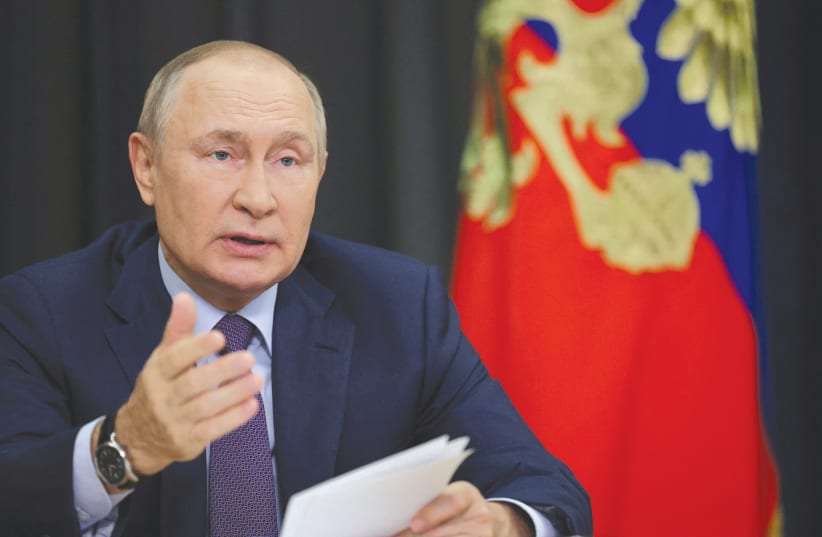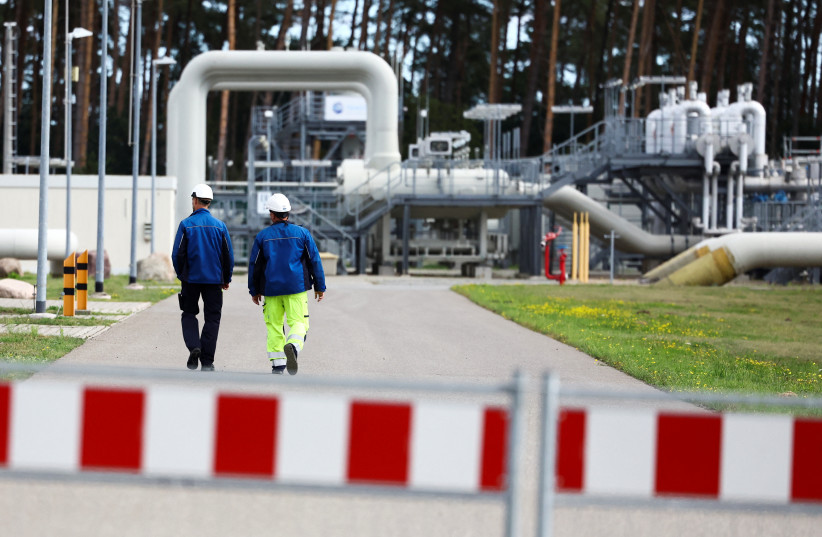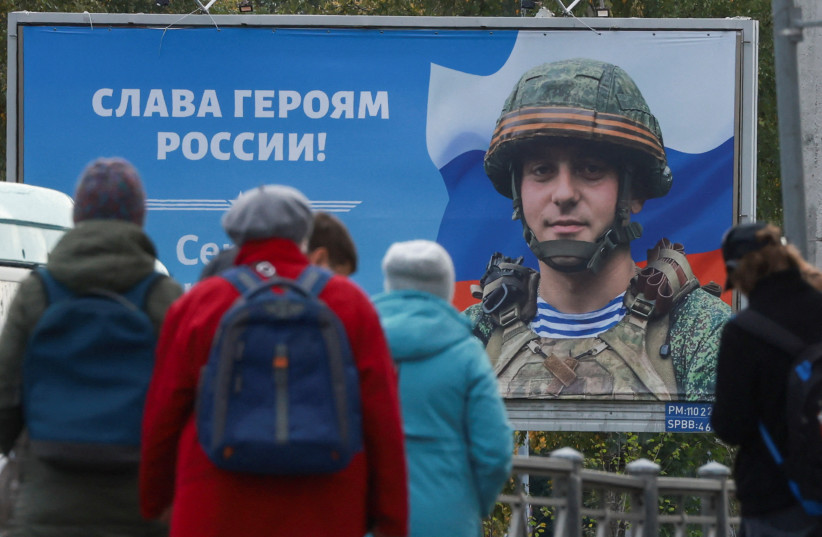Over the last several weeks as Russia began to lose ground in Ukraine, Moscow began hinting at the possible use of nuclear weapons.
This isn’t the first time it has made this threat. Only a handful of countries have nuclear weapons and none of them threaten to use them. Russia’s threats, therefore, are unique and unprecedented. The frequent mention of the possibility of nuclear war is something we have only heard in relation to Ukraine. No other nuclear power engaged in conflicts has dared to bring up the nuclear option.
Russia's nuclear threats are calculated
This means that Russia’s decision to do this appears calculated. Furthermore, the discussion about the nuclear issue is not usually pushed directly by Moscow, but rather by commentators in the West, often defining themselves as “pragmatists” or “realists” who want to explain Moscow’s position. These commentators, who are sometimes academics or pose as experts in foreign policy, generally bring up the nuclear issue as an example of why the West shouldn’t “escalate” in Ukraine.
The combination of the nuclear threat being primarily manifested by Western media seeking headlines and by people who tend to want to appease Russia – as well as the fact that it only appears at certain crucial moments of the war – might indicate that it is largely a bluff by Moscow.
Russia has already conducted an unprecedented invasion of Ukraine on a massive scale. Many countries did not think Russia would actually carry through with the unprovoked invasion. But Moscow did carry it out, and then annexed areas inside of Ukraine. Russia has constantly hinted at the fact that Western arming of Ukraine could expand the war. Attacks on pipelines that connect Russian natural gas to Europe could be a sign that Russia is widening the war.
But what about the nuclear threat?
Various articles have suggested that Russia could resort to “tactical” nuclear weapons. But it isn’t clear which weapons Russia even has at this point that would be helped on a “tactical” level. What that means is that the old days of the Cold War are behind us when nuclear-war experts came up with the bizarre strategy of weapons that could be used on the battlefield, such as low-yield nukes to supposedly stop masses of tanks.
Has Russia invested heavily in modernizing tactical nuclear weapons and practicing with them? It doesn’t seem it has been training for using nuclear weapons in this way. It’s also not clear what Moscow would achieve by doing this. Russia has gambled on its war in Ukraine, hoping that the global South won’t take sides. So far Moscow has been right; countries like India have not wanted to side fully with the West. Neither have Brazil or others. But using nuclear weapons would likely drive countries that sat on the fence into the Western camp.
China would also likely be outraged. This is because most other countries that have nuclear weapons act responsibly with them. The reason countries have sought to prevent Iran from getting a bomb is because of concerns it will behave like Russia is doing now.
A decade ago, from 2009-2013, in the lead-up to the Iran deal, there were several articles that suggested Iran’s nuclear program could lead to stability. Russia’s behavior in Ukraine, from the invasion to talk of nuclear conflict, demonstrates the reasons why Iran also can’t be trusted.
That means that Russia is at risk of isolating itself even more if it continues to go down this road. Putin has a goal in Ukraine; it is one that gambles on the long term and is rooted in a belief that the West is declining. But even Putin’s decline hypothesis would be challenged if Moscow deployed nuclear weapons.
Some fear Russia's threats might be serious
The talk of Moscow’s reverses on the battlefield and pressure it now faces have led some to imagine that the nuclear threat might be serious. John Bolton, a former US national security advisor and ambassador to the United Nations, was quoted in Sky News as saying that Russia is in “greater trouble than at any point since the invasion.... So I think without question that increases Putin’s domestic difficulties in regular Russian politics and makes it somewhat more likely that the use of a tactical nuclear weapon might be possible.”
In a recent CBS interview, Rolf Mowatt-Larssen – former CIA Moscow station chief and William J. Perry Distinguished Fellow at the Nuclear Threat Initiative – spoke about the nuclear threat. Mowatt-Larssen said that Western leaders must take Putin’s threats seriously.
“There is no military reason for Vladimir Putin to do this. In other words, he can’t use tactical nuclear weapons on the battlefield to win a war he can’t win with an army. Nuclear weapons don’t take territories. They don’t hold territories. It is a way to try to strike back at an enemy you can’t stop with an asymmetric weapon of mass destruction. That’s the danger.”
In a video posted online, retired US Gen. Ben Hodges said something similar speaking to CNBC. He said that this was a credible threat but added it was unlikely because there is no battlefield advantage in using nukes.
The nuclear threat appears to emerge every time Russia wants to shift gears in Ukraine. When it first attacked, it also referenced the nuclear issue, hoping the West would not intervene. When the West called Moscow’s bluff, the Russians had to change their tactics. Now Russia has annexed parts of Ukraine, and Russia wants to warn the Ukrainians not to continue their successful advance.
It seems all the talking points about not escalating in Ukraine and giving Putin an “off-ramp” are points that Moscow wants to be raised, and it wants people afraid of nuclear war because it thinks that then it might be able to cement its control of areas it illegally annexed.


